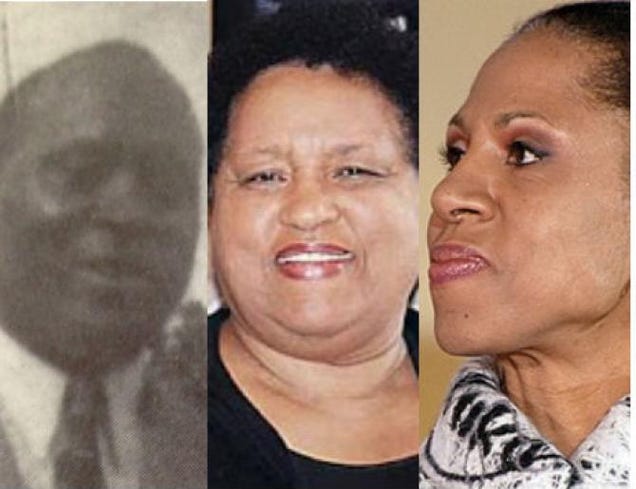Black in the USSR: 3 Generations of a Russian Family
The Root
2015-12-12
Steven J. Niven
Escaping the oppression of a racist America, a black scientist named Oliver Golden took Soviet citizenship in the 1930’s and began a legacy for his family that endures in Russia today.
1932, the poet Langston Hughes spent Christmas in the ‘dusty, coloured, cotton-growing South’ of Uzbekistan, then one of the Soviet Union’s Asian republics. Hughes had been in Moscow, working on a film critical of American race relations, but the project was abandoned, in part because the Soviets were then seeking official diplomatic recognition and improved economic ties with the United States. After an exhausting 2000-mile journey on frozen, ramshackle Russian trains, he arrived on Christmas Eve in Yangiyul, near Tashkent, “in the middle of a mudcake oasis frosted with snow,” and visited “a neat, white painted cottage,” where “it was jolly and warm.”
His hosts were Oliver Golden, a black Mississippian, and his wife Bertha Bialek, the white New York-born daughter of Polish Jewish immigrants, who had prepared traditional American meal capped off with pumpkin pie to celebrate the season—washed down, of course, with copious amounts of local cognac and vodka. Most of his fellow guests were black men and women. As he looked out his window on Christmas morning Hughes saw some tall, brown skinned Uzbeks on horseback, padding across the snowy fields, and was reminded of images he had seen in Sunday School when he was a boy in Kansas. “In their robes these Uzbeks looked just like bible characters, and I imagined in their stable a manger and a child.”
Oliver Golden was the driving force behind the presence of a group of black scientists in Tashkent to assist in the cultivation of cotton, which had prompted Hughes visit. Born in Yazoo County in the Mississippi Delta in 1887, Golden was the son of former slaves who had prospered during Reconstruction. By the time he reached his twenties, however, his family home had been burned down twice as part of the broad, violent, and successful campaign to restore white supremacy. He was drawn to the Soviet experiment in the 1920s and 1930s by its promises of racial equality, much as his grandfather had been inspired by the promise of Reconstruction…
…Yelena Khanga was raised by her mother and grandmother, Bertha, in Moscow, where she enjoyed a relatively privileged upbringing as the child of a leading Soviet academic. Like her mother, she was a talented tennis player, and attended Moscow State. She graduated in 1984 with a degree in journalism, and worked for three years with the Moscow World News. In 1987, in the wake of Glasnost, President Mikhail Gorbachev’s liberalization of the Soviet system, Khanga was selected to take part in an exchange program between American and Soviet newspapers. She moved to Boston to work for the Christian Science Monitor.
While in the US she began to research her black and Jewish ancestry, and traveled to Yazoo, Mississippi, to visit the land once owned by her great-grandfather. She also met many of her African American relatives at a family reunion in Mississippi, and in 1992 published a memoir, Soul to Soul: The Story of a Black Russian American Family. In that book Khanga admitted that racism existed in Russia during the Soviet era and had worsened since communism’s collapse, but she was also clear that her own family had experienced more discrimination for being Jewish and American than for being black. Around this time her mother also began visiting the United States, and taught at Chicago State University in the 1990s, before returning to Moscow to help raise her daughter’s children. Lily Golden died in Russia in 2010…
Read the entire article here.


